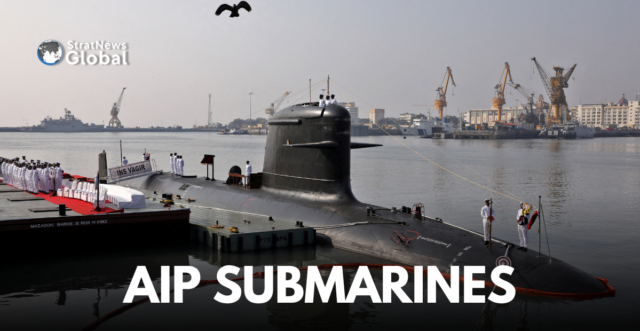The Mazagon Dock Shipbuilders Limited (MDL) and the German naval company Thyssenkrupp Marine Systems (TKMS) are anticipated to secure a multi-billion dollar contract to build six conventional submarines for the Indian Navy as part of Project 75, as reported by The Week.
German shipbuilder ThyssenKrupp and its Indian partner have cleared field trials, emerging as the sole contender for the $5 billion project, which translates to Rs 70,000 crore.
Project 75 is a significant military procurement effort by the Ministry of Defence to enhance the Navy’s submarine capabilities. The aim of the project is to acquire advanced submarines capable of remaining submerged for three weeks.
Their potential rival, Spanish state-held shipbuilder Navantia, which partnered with India’s Larsen & Toubro (L&T), could not meet the navy’s requirements in trials held in 2024 for testing key technologies, an Indian defence source said.
Crucial Project
The project is crucial to India’s effort to modernise its military and boost its naval capabilities in the face of China’s growing presence in the Indian Ocean region.
ThyssenKrupp’s Indian partner, state-owned Mazagon Dock Shipbuilders Ltd, said in an exchange filing on Thursday that its field trials for the project were successful and the Indian defence ministry had invited the company for commercial negotiations next week.
The defence ministry, L&T and its submarine partner did not respond to requests for comment.
A key requirement for the project was air-independent propulsion (AIP) technology, which would allow the diesel-electric attack submarines to stay underwater for over two weeks. A conventional submarine without AIP technology would have to surface every few days to charge its batteries.
Delay In New Submarines
Currently, the 17 conventional submarines operated by the Indian Navy do not have AIP technology, which India’s neighbours China and Pakistan have, according to the nonprofit Nuclear Threat Initiative.
Analysts say the project for the six new submarines has been delayed by more than a decade, with the first of them now expected three to five years after a contract is agreed.
About half of India’s conventional submarines have undergone multiple upgrades and retrofits over the past few years and are nearing the end of their productive lives.
(with inputs from Reuters)





